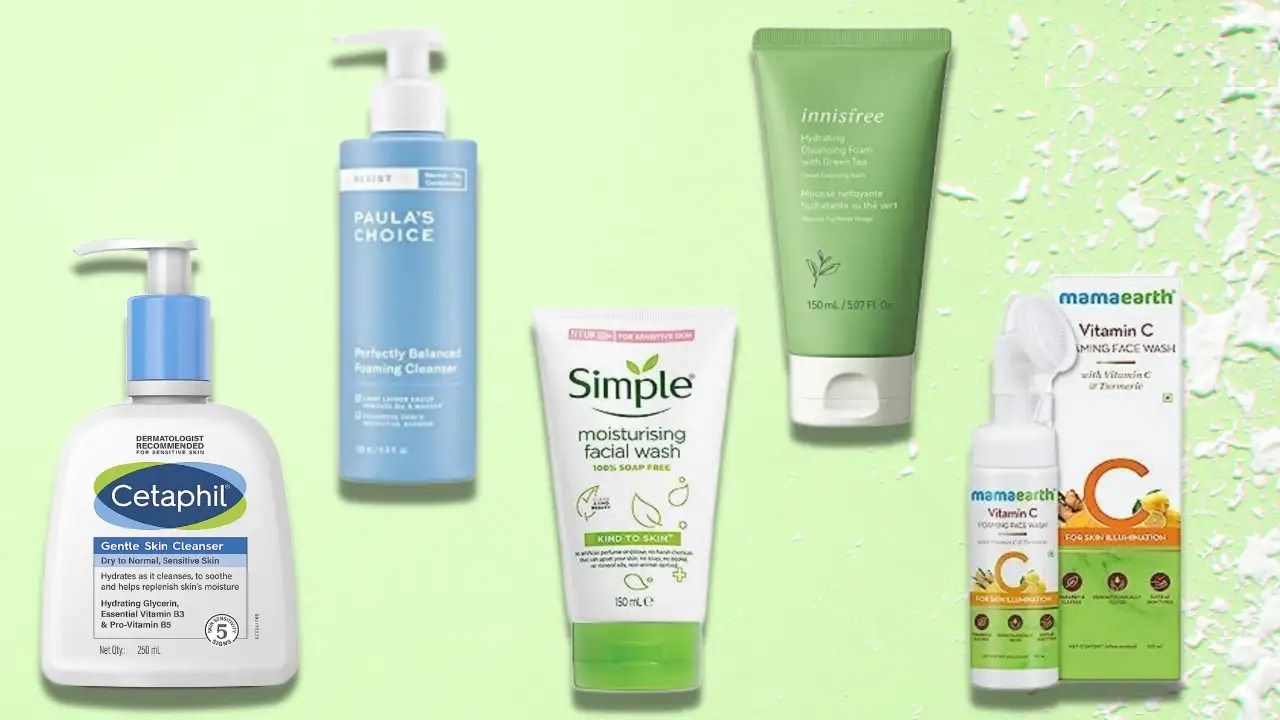
If you have dry skin, it’s important to choose a face wash that won’t strip your skin of its natural oils. Here are five of the best face washes for people with dry skin:
Ubtan Face Wash: Ubtan is a traditional Indian beauty treatment that has been used for centuries to cleanse and brighten the skin. Ubtan face wash is a modern take on this ancient beauty ritual, and it typically contains a blend of natural ingredients like turmeric, sandalwood, chickpea flour, and rose water.
Ubtan face wash is designed to exfoliate the skin, remove impurities, and brighten the complexion. It can be used on all skin types, but is particularly beneficial for those with oily or acne-prone skin. The natural ingredients in ubtan face wash work together to gently slough away dead skin cells, unclog pores, and reduce inflammation, helping to leave your skin looking smoother and brighter.
Ubtan face wash is easy to use – simply wet your face with water, apply a small amount of the face wash to your fingertips, and gently massage it into your skin in circular motions. Rinse off with water and follow up with a moisturizer to keep your skin hydrated and soft. With regular use, ubtan face wash can help to improve the overall health and appearance of your skin.
Rice Face Wash: Rice face wash is a beauty treatment that has been gaining popularity in recent years, especially in Asian skincare routines. Rice is rich in antioxidants, vitamins, and minerals, which makes it a great ingredient for skincare. Rice face wash is typically made by grinding rice into a fine powder and combining it with other natural ingredients like honey, milk, or yogurt.
Rice face wash is gentle enough to use daily and can be used on all skin types, including sensitive skin. It helps to brighten the complexion, exfoliate dead skin cells, and hydrate the skin, leaving it soft and smooth. The natural enzymes in rice also help to reduce inflammation and redness, making it a great option for those with acne-prone skin.
To use rice face wash, simply wet your face with water, take a small amount of the rice powder, and mix it with a few drops of water to form a paste. Gently massage the paste onto your face in circular motions, avoiding the eye area, and then rinse off with water.
Aloe Vera Face Wash: Aloe vera face wash is suitable for all skin types, including sensitive skin. It helps to cleanse the skin, remove impurities, and soothe any inflammation or redness. Aloe vera contains natural enzymes and antioxidants that help to hydrate and nourish the skin, leaving it feeling soft and refreshed.
Aloe vera face wash is easy to use. Simply wet your face with water, take a small amount of the face wash and massage it onto your skin in circular motions, avoiding the eye area. Rinse off with water and pat dry. For best results, follow up with a moisturizer to lock in hydration and keep your skin looking healthy and glowing.
Regular use of aloe vera face wash can help to improve the overall health and appearance of your skin. It can also help to prevent breakouts, reduce the appearance of fine lines and wrinkles, and protect the skin from environmental stressors. However, it’s important to choose a high-quality aloe vera face wash and to patch test any new skincare products before using them on your face to avoid any potential allergic reactions or irritations.
First Aid Beauty Pure Skin Face Cleanser: This is a creamy, pH-balanced cleanser that is infused with aloe vera and glycerin to help soothe and hydrate dry skin.
Aveeno Ultra-Calming Hydrating Gel Cleanser: This is a gentle cleanser that is formulated with calming feverfew extract and hydrating glycerin to help soothe and moisturize dry, sensitive skin.
Remember to always follow up with a moisturizer after washing your face to lock in hydration and keep your skin looking healthy and radiant.
What Is a Face Wash, and What Does It Do?
A face wash is a type of cleanser designed specifically for use on the face. It is used to remove dirt, oil, makeup, and other impurities from the skin’s surface. Face washes come in a variety of formulas, including gel, cream, foam, and oil-based. They can be formulated for different skin types and concerns, such as dry skin, oily skin, acne-prone skin, and sensitive skin. Some face washes also contain active ingredients like salicylic acid or benzoyl peroxide to help treat acne or other skin conditions. Using a face wash as part of your daily skincare routine can help keep your skin clean and healthy-looking.
A face wash serves a few different purposes for the skin. Firstly, it helps to remove dirt, oil, and impurities from the surface of the skin. Throughout the day, our skin can accumulate a variety of pollutants and debris, which can clog pores and contribute to the development of acne, blackheads, and other skin problems. By using a face wash, you can effectively cleanse the skin and remove these impurities, helping to keep your skin clear and healthy.
Secondly, a face wash can help to balance the skin’s natural oil production. Depending on the type of face wash you use, it can help to hydrate and nourish dry skin or control excess oil production in oily skin types. This can help to keep the skin looking balanced and healthy, without feeling too dry or too oily.
Finally, using a face wash can also help to prepare the skin for the application of other skincare products, such as moisturizers, serums, or treatments. By cleansing the skin first, you can help to ensure that these products are able to penetrate the skin and work effectively.
How to avoid dry skin?
Dry skin can be uncomfortable, itchy, and even painful. Here are some tips to help you avoid dry skin:
Use a mild, fragrance-free cleanser: Harsh soaps and cleansers can strip your skin of its natural oils, leading to dryness. Choose a gentle, hydrating cleanser that is free of fragrances and other irritants.
Moisturize regularly: Apply a moisturizer to your skin immediately after bathing or washing your face to help lock in hydration. Look for a moisturizer that contains ingredients like hyaluronic acid, glycerin, or ceramides, which can help to soothe and hydrate dry skin.
Stay hydrated: Drinking plenty of water can help to keep your skin hydrated from the inside out. Aim to drink at least 8-10 glasses of water per day.
Use a humidifier: Dry indoor air can contribute to dry skin. Using a humidifier can help to add moisture back into the air and prevent your skin from drying out.
Avoid hot showers or baths: Hot water can strip your skin of its natural oils and lead to dryness. Stick to warm water instead, and limit your showers or baths to no more than 10 minutes.
Wear protective clothing: Cold, dry weather can be particularly harsh on the skin. Wear gloves, scarves, and hats to protect your skin from the elements.
By following these tips, you can help to prevent dry skin and keep your skin looking healthy and radiant.








